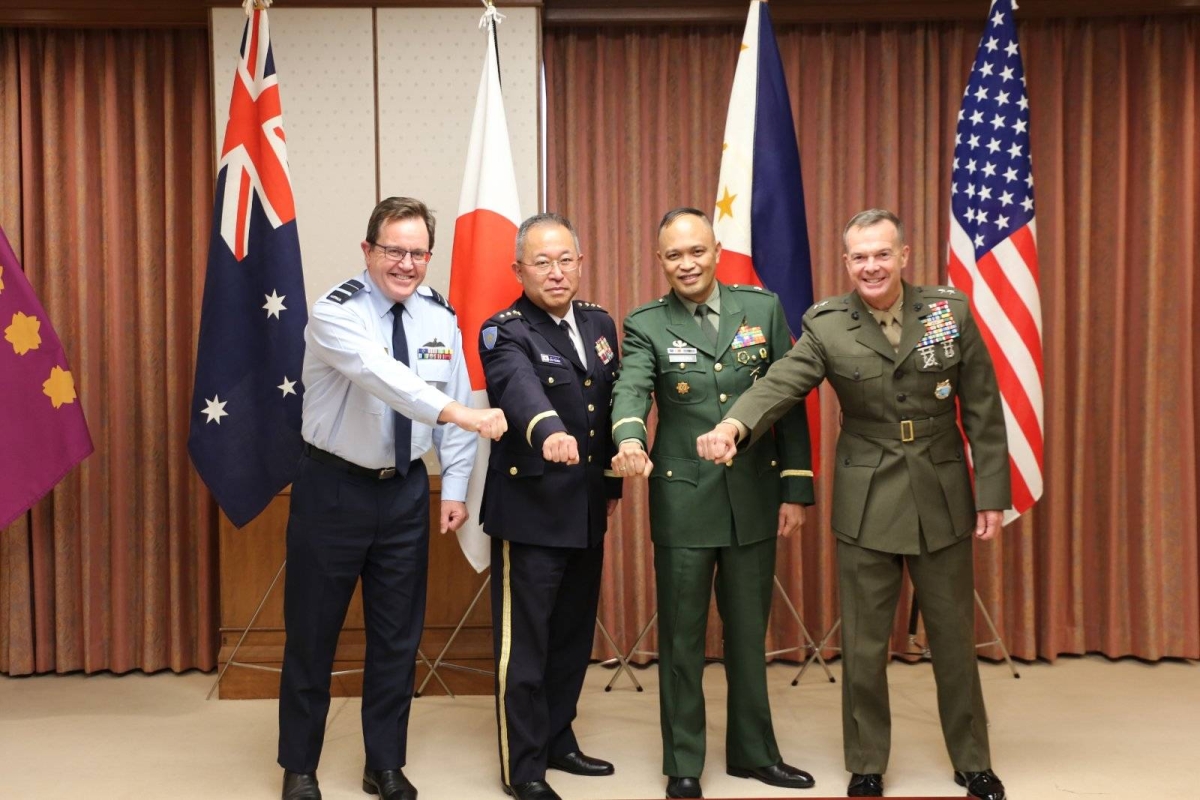Officials from the Philippines, United States, Japan, and Australia recently gathered in Tokyo to discuss regional issues of common interest and explore opportunities to expand cooperation. The meeting, which took place from November 28 to December 1, was an offshoot of the Japan-PH-AUS-US Defense Ministerial Meeting held in Singapore on June 3, 2023.
The attendees included Mike Kitcher, deputy chief Joint Operations, Australian Defense Forces; Major General Nobutaka Minamikawa, Defense Plans and Policy Department, J5, Japan Self-Defense Force; Major General Jay Bargeron, director for Strategic Planning and Policy Directorate, J5, US Indo-Pacific Command; and Brigadier General Rommel Cordova, assistant deputy Chief of Staff for Plans, AJ5, Armed Forces of the Philippines.
During the meeting, the officials reaffirmed their shared vision for a “Free and Open Indo-Pacific” and expressed their commitment to ensuring that this vision continues to thrive. This collective effort highlights the strong alliance and partnership between these nations, particularly in protecting defense and security interests in the Indo-Pacific region.
The involvement of the Armed Forces of the Philippines (AFP) in this gathering further demonstrates their dedication to their alliance with like-minded nations. The AFP recognizes the importance of working together with other countries to safeguard Philippine defense and security interests in the region.
Recently, the United States, Australia, and the Philippines concluded maritime cooperative activities in the West Philippine Sea. These joint efforts reflect the commitment of these nations to maintaining peace and stability in the region.
It is crucial to understand the context of this meeting within the framework of international relations. The “Free and Open Indo-Pacific” vision aims to promote a rules-based order, respect for international law, and the freedom of navigation and overflight in the region. By coming together and discussing regional issues, these four allied partners are actively working towards achieving these goals.
Each country brings its unique perspective and expertise to the table. The United States, as a major global power, plays a crucial role in maintaining stability and security in the Indo-Pacific region. Japan, as a close ally of the United States, shares a commitment to upholding the rules-based order and ensuring a peaceful and prosperous region. Australia, as a longstanding partner, contributes to regional security through its defense capabilities and commitment to international cooperation. The Philippines, as a key player in the region, actively participates in initiatives that promote peace and stability.
By collaborating and exchanging ideas, these nations can address common challenges such as maritime security, counterterrorism, and humanitarian assistance and disaster relief. They can also explore opportunities for economic cooperation, trade, and investment, which can contribute to the overall development and prosperity of the Indo-Pacific region.
It is important to note that these discussions and initiatives are conducted in accordance with each country’s respective laws and customs. International cooperation requires an understanding and respect for the legal frameworks and cultural sensitivities of all participating nations.
As the world becomes increasingly interconnected, regional cooperation plays a crucial role in addressing global challenges. The collaboration between the Philippines, United States, Japan, and Australia reflects a shared commitment to promoting peace, stability, and prosperity in the Indo-Pacific region. Through these meetings and joint activities, these nations continue to strengthen their alliance and work towards a free and open future for all.
Source: The Manila Times







